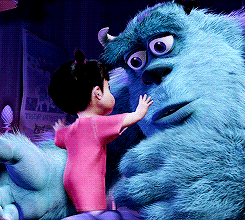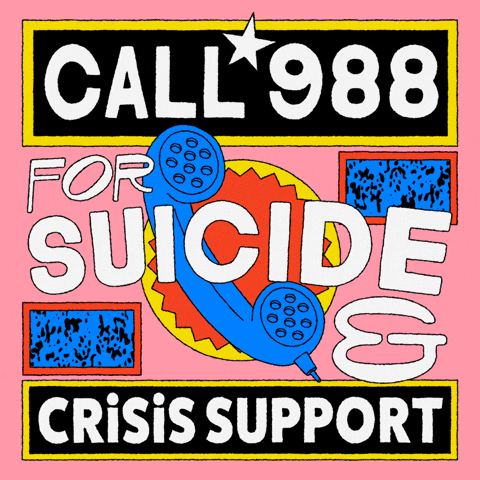- Uplift
- Posts
- It Changes, and That’s Okay
It Changes, and That’s Okay
Table of Contents
Grief Doesn’t Get Easier: It Changes, and That’s Okay
I remember it as if it were yesterday. And I remember those moments when someone tried to comfort me with words. If that’s why you’re here, for comfort in words. I’m going to be honest. We aren’t going to go down that path. What I will say is that your feelings are valid and it just fucking sucks. Period. Doesn’t matter who you lost, parent, family member, child, friend, pet… It just sucks. That being said, I love you and believe in you and know, even with this pain and weight, that you will get through this moment.
Ya see, when you lose someone you love, you’re often met with all those well-meaning words of comfort: “It will get easier.” “Time heals all wounds.” “You’ll feel better with time.” While these sentiments are intended to bring hope, they don’t always align with the reality of grief. Because I don’t believe it will ever get easier or that it will ever get better.
It just changes.
Grief is not something you overcome—it’s something you learn to carry. Over time, it changes shape. It doesn’t consume your every waking moment the way it might in the beginning, but it doesn’t vanish either. And when those waves of loss come rushing back—whether it’s a song, a scent, or a holiday tradition that triggers the memories—it’s okay to feel them fully. And with that time, if I were going to ask one thing, it would be that you allow them and validate them and know you are loved.
Grief is messy, unpredictable, and deeply personal. But here’s the most important thing, so important I am going to say them once more: your feelings are valid, no matter when or how they appear.

Grief Isn’t Linear
There’s a common misconception that grief follows a neat, linear path: denial, anger, bargaining, depression, and acceptance. But real grief isn’t so tidy. It ebbs and flows, often without warning. You might feel fine for weeks, even months, and then suddenly find yourself overwhelmed by emotion on an otherwise ordinary day.
It’s not a setback, and it doesn’t mean you’re “failing” at grief. It’s simply the nature of love and loss. As time passes, you might cry less often, but that doesn’t mean the pain is gone—it just takes up residence in a different part of your heart.

It Changes, But It Doesn’t Disappear
Imagine your grief as a deep wound. In the early days, it’s raw and open, and every little thing can make it throb with pain. Over time, it begins to heal, but it leaves a scar—a permanent mark that reminds you of what you’ve lost.
That scar doesn’t hurt all the time, but it’s always there. And sometimes, it aches unexpectedly. The holidays, birthdays, anniversaries, or even random moments can bring back that ache, no matter how much time has passed.
This isn’t a sign that you haven’t healed—it’s a sign of how deeply you loved. And it’s okay to let yourself feel it when it resurfaces.

The Pressure to “Move On”
In a world that prioritizes resilience and positivity, there’s often an unspoken pressure to “move on” from grief. But moving on doesn’t mean forgetting. It doesn’t mean packing your emotions into a neat little box and never opening it again.
Instead, think of it as moving forward. You carry your grief with you, but you also carry your memories, your love, and your connection to the person you lost. Moving forward doesn’t erase the past—it integrates it into who you are now.
When someone says, “It will get better,” it’s okay to acknowledge that better might not mean what they think. Grief changes you, but it doesn’t have to define you.

When the Waves Come, Let Them
Sometimes, grief feels like a crashing wave, pulling you under when you least expect it. It might happen during a quiet moment, when you see something they would’ve loved, or when you hear their favorite song.
Instead of fighting the wave, let yourself feel it. Sit with the sadness, the longing, and even the anger if it’s there. These feelings aren’t a burden—they’re a reflection of the love you shared.
And after the wave subsides, take a deep breath. It’s okay to feel grief alongside joy, sadness alongside hope. Emotions can coexist, and they’re all valid.

Grief Is a Testament to Love
The depth of your grief is a measure of the love you had for the person you lost. It’s a testament to the impact they had on your life and the part of them that lives on in you.
When someone says, “It will get easier,” perhaps what they mean is that you’ll grow stronger in carrying it. You’ll find ways to weave their memory into your life, whether it’s through traditions, stories, or quiet moments of reflection. You’ll learn to hold space for your grief without letting it consume you.

It’s Okay to Feel the Loss Whenever It Comes
No matter how much time has passed, it’s okay to feel the loss. It’s okay to cry on their birthday, to ache during the holidays, or to miss them fiercely on a random Tuesday.
Grief doesn’t have a timeline. It’s not something you check off your to-do list. It’s an evolving part of your life, and that’s okay. Your feelings are valid—every tear, every smile, every bittersweet memory.

Embracing the Journey
Instead of striving for it to get easier, allow yourself to embrace the journey of grief. Let it shape you, teach you, and remind you of the love that made it all worthwhile.
Grief doesn’t mean forgetting or “moving on.” It means continuing to love, even when it hurts. It means carrying their memory with you as you navigate the world without them. And most importantly, it means allowing yourself to feel, without judgment or expectation.
So when the waves come, let them wash over you. And when they pass, know that you’re not alone. You are carrying your grief—and your love—with strength, courage, and grace. And that’s enough.
Honoring Loss
In our publication for The 303 Collective we also share how to honor the loss of a loved one


Reply